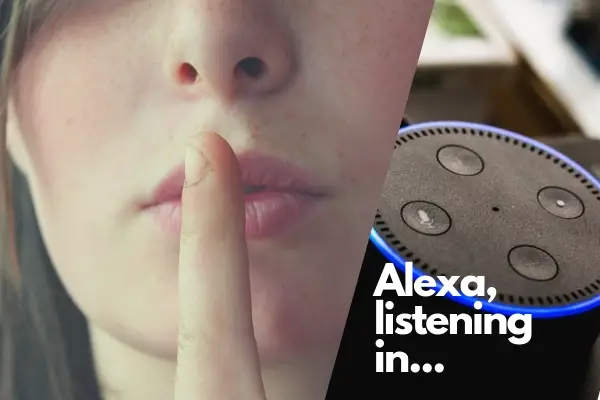
PHOTOS: Pixabay, Pexels
The ‘smart home’ movement may seem like it came straight out of a futuristic Sci-Fi movie with electronic gadgets controlling the home’s security cameras, Wi-Fi, spying on pets, and even checking what is in your fridge.
This reality is becoming more commonplace than ever, and it does not come without major concerns.
Aside from many health risks from EMF exposure (mitigated and blocked by EMF protection cell phone and laptop sleeves), Amazon’s Alexa comes with serious, unresolved privacy concerns. As the company, and the ubiquitous device, tries to win the public’s trust, it is also eliminating your privacy in your own home.
Alexa’s Issue of Privacy
There is not much privacy left in the age of smart phones, Facebook, and wireless connectivity to everything. It should come to no surprise that Alexa (or Echo), a wireless virtual assistant, is collecting data. Amazon claims this is for its own purposes, or to function better.
It is not just the electronic device that is listening in, as thousands of Amazon employees around the world employ workers to listen to what Alexa has recorded, and transcribe the voice recordings. These people work in India, Romania, Costa Rica, and many other countries for 9 hours a day, which gives each person time to listen and review up to 1,000 recordings, Bloomberg
reported. Most are requests, but there are also many recordings of private matters like singing in the shower or a screaming child. Some are unsettling, such as sexual assaults or criminal activity that may also get caught on the recordings.
In these cases, Amazon’s stance
according to two employees is to not interfere.
Other conversations Alexa picks up by accident may include private information such as a bank account number. In this case, a reviewer is supposed to click “critical data,” and skip the audio file.
Otherwise, reviewers are supposed to transcribe even accidentally triggered audio recordings.
All of these various recordings are being analyzed, because Amazon says that is how Alexa is getting “smarter.” The collected data is fed back into the system to teach it how to respond to any requests that people have for it.
“You don’t necessarily think of another human listening to what you’re telling your smart speaker in the intimacy of your home. I think we’ve been conditioned to the [assumption] that these machines are just doing magic machine learning. But the fact is there is still manual processing involved,” said Florian Schaub, a professor at the University of Michigan.

Buy cellphone and laptop cases that protect you from EMF radiation. PHOTO: SafeSleeve, Instagram.
Amazon’s Contradicting Privacy Statements
According to Amazon, the user can opt-out from anyone using their voice recording by going to Alexa’s privacy settings. Yet, the company also says that some recordings may still be analyzed by hand.
The company claims that “employees do not have direct access to information that can identify the person or account.” That has been recently proven false.
Bloomberg reported that they received a screenshot showing that Alexa reviewers do see the user’s first name and the account number, as well as the device’s unique serial number.
Even more recent reports have stated that the Amazon team that audits users’ commands has access to location of each device and can easily find where they live using geographic coordinates.
“Anytime someone is collecting where you are, that means it could go to someone else who could find you when you don’t want to be found,” said Lindsey Barrett, a staff attorney at Georgetown Law’s Communications and Technology Clinic.
It is unknown to the public how many employees have access to this information. According to Bloomberg’s article, until recently most had access, or so say to Amazon employees. They also write that the “limited number of employees” that still have the access is a vague number that very well could be thousands of people.
If you want to keep your privacy (or what you have left of it), you may want to avoid using Alexa or other virtual assistants.
Thanks for installing the Bottom of every post plugin by Corey Salzano. Contact me if you need custom WordPress plugins or website design.
Comments
comments






